Boston Maritime Trial Lawyers Earn Significant Court Decision in Ferry Accident Case
Boston Maritime Trial Lawyers Earn Significant Court Decision in Ferry Accident Case
This December 2009 WMTW-TV video discusses the concern that city leaders in Portland, Maine, had when Bay Ferries Ltd. announced it canceling its ferry service between Bar Harbor in Portland and Yarmouth, Nova Scotia. The decision was made the same year that one of our clients sustained devastating injuries on THE CAT, a 319-foot-long catamaran vessel capable of carrying over 800 passengers and 200 automobiles. After Bay Ferries stopped operating THE CAT in October 2009, the company sold it to a Chinese corporation in 2011.
In February 2009, Nicole Green made phone reservations for her parents’ entire family on THE CAT in honor of her father’s 60th birthday. Her reservation was confirmed by email, but did not contain any explicit terms, conditions or limitations. Kenneth and Nancy Metcalf’s family drove to Portland on August 14, 2009, and entered a line of cars waiting to board THE CAT. Immediately prior to driving onto the ferry, Kenneth received physical tickets at a drive-through box office and was handed a folder of materials that contained a boarding pass identifying each passenger by name, Canadian customs forms, advertising information and a list of terms and conditions of passage. While the terms and conditions included waivers of liability and a forum selection clause, the folder jacket had no external indication that it contained terms and conditions.
After traveling across the Gulf of Maine, Kenneth fell while using a stairwell connecting the passenger deck to the lower vehicle deck. He sustained injuries to his cervical spine and had to be taken to Yarmouth Regional Hospital before being transported to Queen Elizabeth Hospital in Halifax, Nova Scotia, for stabilization and intensive care. Kenneth underwent six days of treatment in Canada before being airlifted to Massachusetts for continuing medical care. He fractured several of his cervical vertebrae and was rendered an incomplete C5-C7 tetraplegic, largely confined to a wheelchair. Kenneth has not traveled any further afield than Boston, Massachusetts, since sustaining the injury, and he requires about 60 hours of personal care attendance per week.
While it operated entirely in Canadian and American territorial waters, THE CAT was registered in the Bahamas. The Metcalfs filed suit in Canada in June 2010, but they were told it would take at least another 24 months to set a trial date and 30 months to receive a final judgment in that litigation. Even then, Canadian law would limit any recovery in a Canadian court to approximately $264,000—an amount that falls far short of the total medical expenses already accumulated by the Metcalfs.
Bay Ferries argued in United States District Court in Massachusetts that the forum selection clause prevented the Metcalfs from filing suit in an American court, but Latti & Anderson LLP successfully convinced the court that the Metcalfs were presented with the terms and conditions of their tickets only a few minutes prior to boarding THE CAT. Additionally, our firm demonstrated that Bay Ferries solicited business in Massachusetts through internet ads on the website of the Boston Globe as well as advertisements on Boston area TV channels, in Triple-A regional publications, and the Worcester Telegram & Gazette. While the Bay Ferries vessels did not regularly travel to Boston, we were able to prove they did so on three separate occasions in 1999, 2002 and 2006 as part of a Nova Scotia Tourism Tradeshow—with the latter two tradeshows involving visits from THE CAT itself.
The court agreed that other courts in “both the First and Second Circuits have found that maritime forum selection clauses are unenforceable as a matter of law where passengers received the full terms and conditions of passage only minutes before boarding a vessel.” The court also agreed that the Metcalfs would face considerable burdens if they were forced to litigate in Canada and said Bay Ferries’ argument was unavailing. “All of the cases upon which it relies can be distinguished from this dispute,” the court order read. “None of these fact patterns are replicated here.”
This case is an important example of some of the tactics that many smaller companies may try to employ to avoid liability in ferry accidents. Cruise lines often use waivers of liability and forum selection clauses hidden in their tickets to prevent passengers from taking legal action following cruise ship injuries. If you or a loved one sustained injuries on any waterborne vessel, it is in your best interest to discuss your legal options with an experienced Boston maritime attorney.
Latti & Anderson LLP has been representing maritime accident victims for more than 50 years, and you can find learn more about how our firm helps injured passengers by visiting our website. The numerous multi-million dollar verdicts and settlements we have obtained for our clients includes a $920,172 verdict for an individual who sustained torn cartilage on a passenger ferry. If you or a loved one sustained injuries at sea, contact our firm right now at (800) 392-6072 to schedule a free consultation or complete the form on this page to have our Boston maritime trial lawyers review your case.
Latti & Anderson LLP – Boston maritime attorneys
